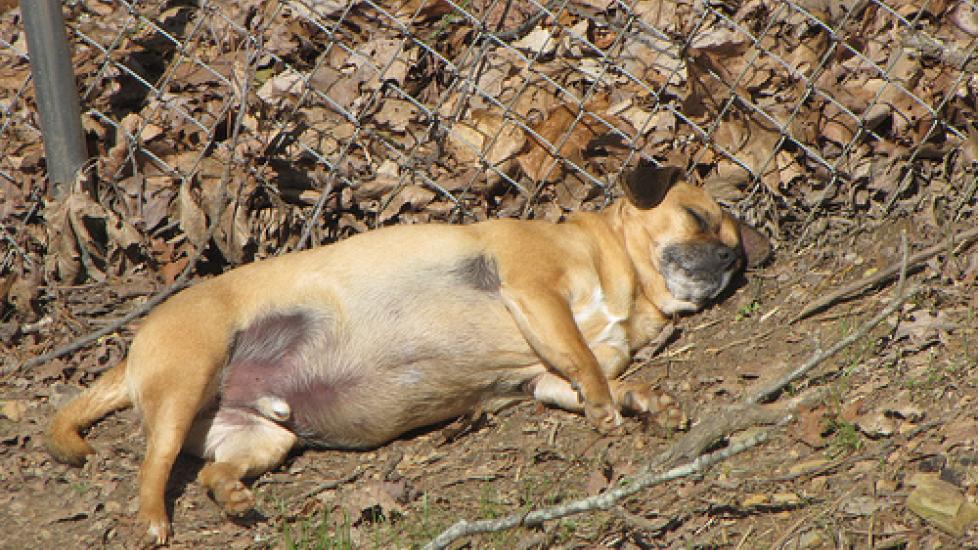Diet Pills for Dogs?
We see the ads everywhere: on the sidebar of our Facebook pages and newspaper sites, tacked to the light poles at the corner intersections, even in our phone’s text inbox. Like them or not, weight loss products and their advertisements are a ubiquitous part of life. But are weight loss products as safe and effective for dogs as they are for people -- or, conversely, as potentially unsafe? With so many dogs being classified as overweight or obese, the idea is worth consideration.
In early 2007, the U.S. Food and Drug Administration approved dirlotapide, the first veterinary medication designed as a weight management aid for dogs. Used in conjunction with a veterinarian-approved diet and exercise program, this medication may be an effective tool for reducing your dog's weight safely and effectively.
What is Dirlotapide?
Dirlotapide is an oil-based appetite suppressant, formulated to be given orally once a day, either directly using an oral syringe or mixed in with a small amount of food. Because it is a drug, your dog must be evaluated for any contraindications before being approved for use. Your veterinarian will conduct a full examination, taking into account your dog’s age, breed, and any health considerations that might indicate that your dog would benefit from a different weight loss plan. If it is approved for your dog, your veterinarian will help you to design a schedule and go over all of the specifics and precautions that need to be taken.
How does Dirlotapide Work?
Dirlotapide prevents the intestine from absorbing some of the dietary fat that is in your dog’s food. This creates a false feeling of fullness, in effect suppressing the appetite. Because the dog is eating a smaller amount of food than usual, the body will begin using more of its fat stores, leading to weight loss. Your veterinarian will also help you to plan an exercise program to encourage the body to use more of its stores of fat and to build healthy muscle.
As your dog loses weight, your veterinarian will adjust the dose of dirlotapide, eventually stopping it altogether. Something to be aware of is that the appetite suppression is short term and only affects the dog while it is being given the medication. The effects will cease a within a few days of the cessation of the medicine
What are the Side Effects?
The first possible side effect you may notice is your dog’s reluctance to eat. As mentioned above, this is the result of a decrease in the intestinal absorption of fats from food. Other side effects include diarrhea and vomiting, which may occur at the beginning of treatment or when the dosage is increased, more than normal amounts of salivation, constipation, and mild depression. If you are concerned with any changes that your dog exhibits after beginning dirlotapide, you should consult with your veterinarian whether the dosage should be changed or what you can do to mitigate the effects.
If your dog is already taking other medications, particularly steroids or medications for treating liver disease, your dog may not be a good candidate for dirlotapide. Your veterinarian will make the final decision based on your dog’s overall health.
Image: The_Gut / via Flickr
